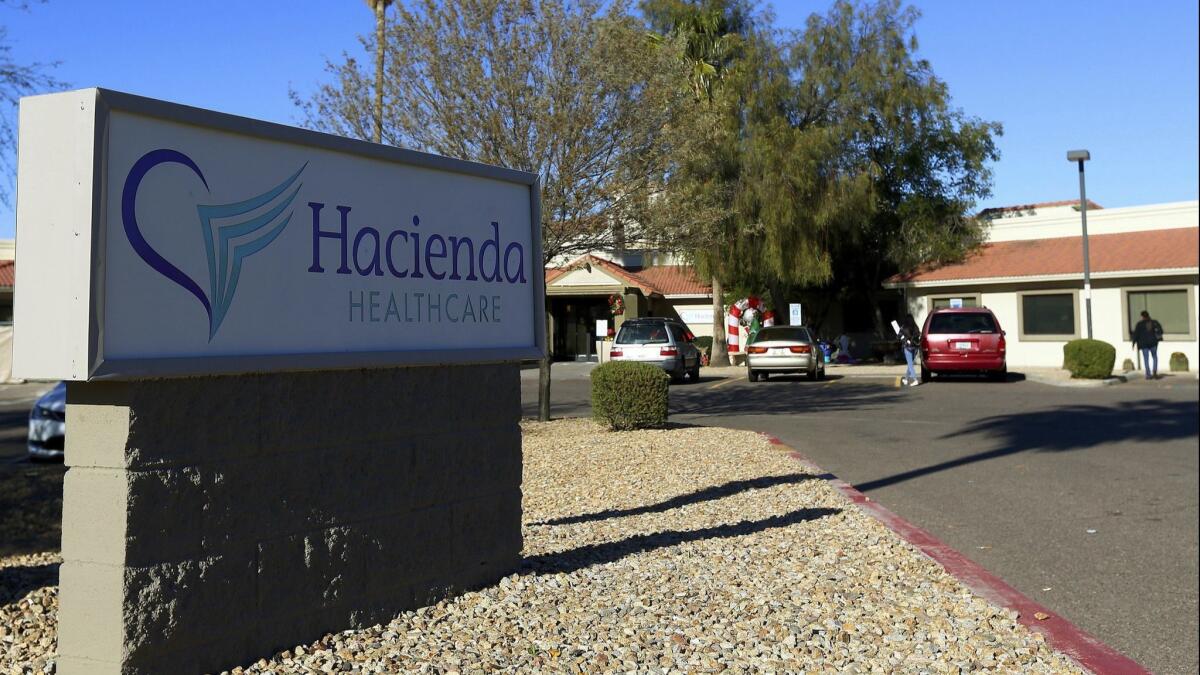Editorial: No, cops shouldn’t round up workers’ DNA in search for a rape suspect

- Share via
The circumstances are horrific, and tailor-made for headlines. A 29-year-old woman in a persistent vegetative state became pregnant while living in a healthcare facility, and in late December she gave birth. Clearly, the patient had been abused — raped while unconscious. Someone did it, and it stands to reason that the perpetrator was a caretaker or other male employee at the Hacienda HealthCare center in Phoenix. Any rape is evil; rape of an especially vulnerable person whose family has entrusted her to medical professionals with a duty to care for her is so evil as to be mind-boggling.
So, should the police get a warrant to gather DNA samples from every male worker at the facility? News reports say that’s exactly what they did, but — should they have done so?
Certainly not. The crime is serious and it must be solved, but not by sending police on an extraordinarily intrusive fishing expedition that grabs innocent people’s most personal and private information without probable cause to believe that they committed the crime.
It’s for good reason that the 4th Amendment curbs the government’s power to search people and seize their belongings, whether it is their papers, their smartphones or their saliva. Without that protection, criminal investigators would be likely to see everyone as a suspect for anything all the time. That leads to a permanent surveillance state, devoid of privacy and personal dignity.
Enter the Fray: First takes on the news of the minute from L.A. Times Opinion »
Certainly police should question employees about what they know, what they heard and where they were nine months earlier. But working at the facility is not sufficient cause to believe a particular person committed a crime or has evidence of it — any more than everyone living in or passing through a particular neighborhood becomes a legitimate suspect and should have to give up DNA samples whenever a crime is committed on the block. Or everyone in a particular office building, religious institution or sports team.
Presumably, the police in the Hacienda HealthCare case want the DNA in order to match the newborn to a father, and once they get their man they could discard samples collected from innocent people and not enter them into a permanent database of suspects of future crimes. But even if they do, that doesn’t make broad DNA gathering OK without probable cause.
There are ways to establish the case, consistent with the 4th Amendment. Police could establish probable cause based on interviews or other evidence, and then seek DNA in order to nail down their case. Or they could ask employees to give up samples voluntarily, or gather them from discarded items in the facility’s garbage cans. Gathering every male employee’s DNA first certainly makes their jobs easier — but it puts the right of the people to be secure from unreasonable government intrusion further out of reach.
Follow the Opinion section on Twitter @latimesopinion and Facebook
More to Read
A cure for the common opinion
Get thought-provoking perspectives with our weekly newsletter.
You may occasionally receive promotional content from the Los Angeles Times.









